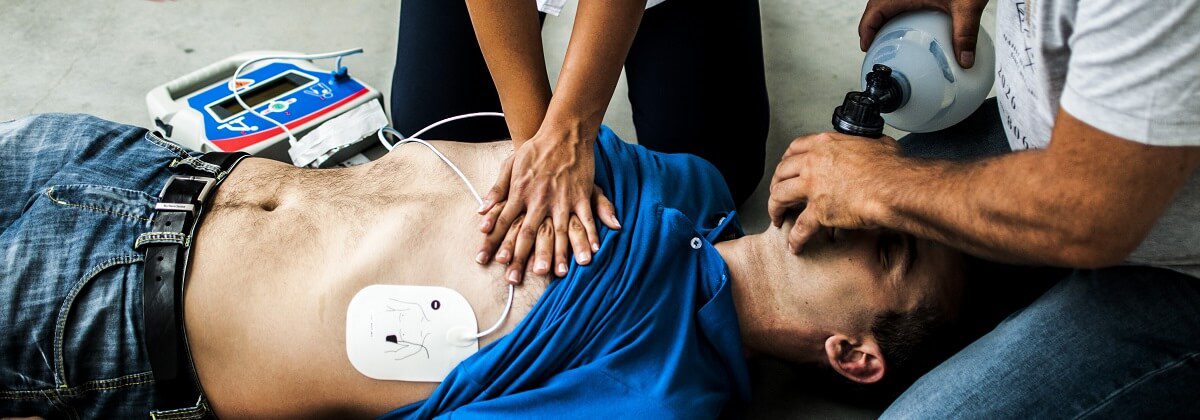An Emergency First Responder (EFR) is a person trained in Cardiac First Response that possesses additional knowledge and skills in the assessment and management of patients in a pre-hospital environment. An EFR may be part of the emergency medical services, a healthcare practitioner or a member of the public who has undertaken a recognised EFR course.
In addition to basic life support cardiopulmonary resuscitation and automated external defibrillation skills, the emergency first responder possesses defined skills in the further assessment and management of common medical emergencies and trauma, including common paediatric emergencies and in providing assistance during labour childbirth. The EFR possesses appropriate knowledge and skills in assisting with the administration of certain prescribed medication. Emergency first responders are skilled in assisting with the movement of patients and can practice key rescue skills under special authorisation according to CPGs. Finally the EFR has basic training in relevant medico-legal issues and in adopting a professional approach to interacting with patients and other emergency medical services in the pre-hospital setting.
Successful completion of the EFR standard and assessment leads to the award of the joint recognised institution and PHECC award at EFR level. This award ensures that the EFR has fulfilled the educational and training requirements as prescribed by PHECC, thereby possessing the knowledge, skills and professionalism in line with the expectations of the public and the profession.
Learning Outcomes for the EFR Course Standard
The EFR standard is the expected competency of the student upon completion of a recognised course. A person at the end of a recognised EFR course will be able to:
- Recognise and assess both common life-threatening and common serious medical conditions in a pre-hospital environment.
- React to a pre-hospital emergency utilising appropriate EFR standard of care according to PHECC CPGs.
- Respond in an effective, safe and appropriate manner to a medical emergency and trauma in a pre-hospital environment utilising the EFR skill set.
- Record and report their actions and interventions appropriately during management and at handover to emergency medical services.
- Retain a professional manner and approach in the performance of their duties as an EFR.
EFR Course Entry Criteria:
- The recommended minimum age for entry is eighteen.
- Certification in CFR (CFR Advanced or CFR Community). Certification in OFA or First Aid Response within the last 12 months is also acceptable. If participants are not CFR Advanced certified, the module ‘Airway and Ventilation’ must be extended to incorporate the CFR Advanced skill set.
EFR Course Duration:
The duration of an EFR course including assessment is no less than 30 contact hours (excluding breaks – averaging 6 hour instruction over 5 days). It can be delivered on a full time or part-time/modular basis. Note – this minimum duration does not include CFR.
EFR Course Ratio:
The instructor student ration must not exceed 1: 6/8 students in a syndicate (or practical skills sessions).
EFR Course Assessment:
Course participants may have their skills assessed throughout or examined at the end of the course. EFR assessment sheets are available from PHECC. The Responder Level Examination Handout for Recognised Institutions (PUB034) can be used to guide assessment.
The mandatory components are:
- Demonstration of EFR skills against the PHECC assessment sheets.
- The EFR multiple choice question paper exam of 40 questions; 80% pass mark.
Certification:
Award of joint PHECC/recognised institution EFR cards/certificates to successful course participants is mandatory. Certification lapses after three years; it is also necessary to retain certification in CFR (every 2 years).
EFR Course Recertification
Recertification in EFR is required every 3 years. The duration of EFR recertification courser shall be no less than 2 days/12 contact hours including assessment (excluding breaks – averaging 6 hours instruction per day). CFR recertification (every 2 years) must be undertaken also.
Add to your personal skill set and add more value to your company by completing an EFR course with The Cpl Institute.
